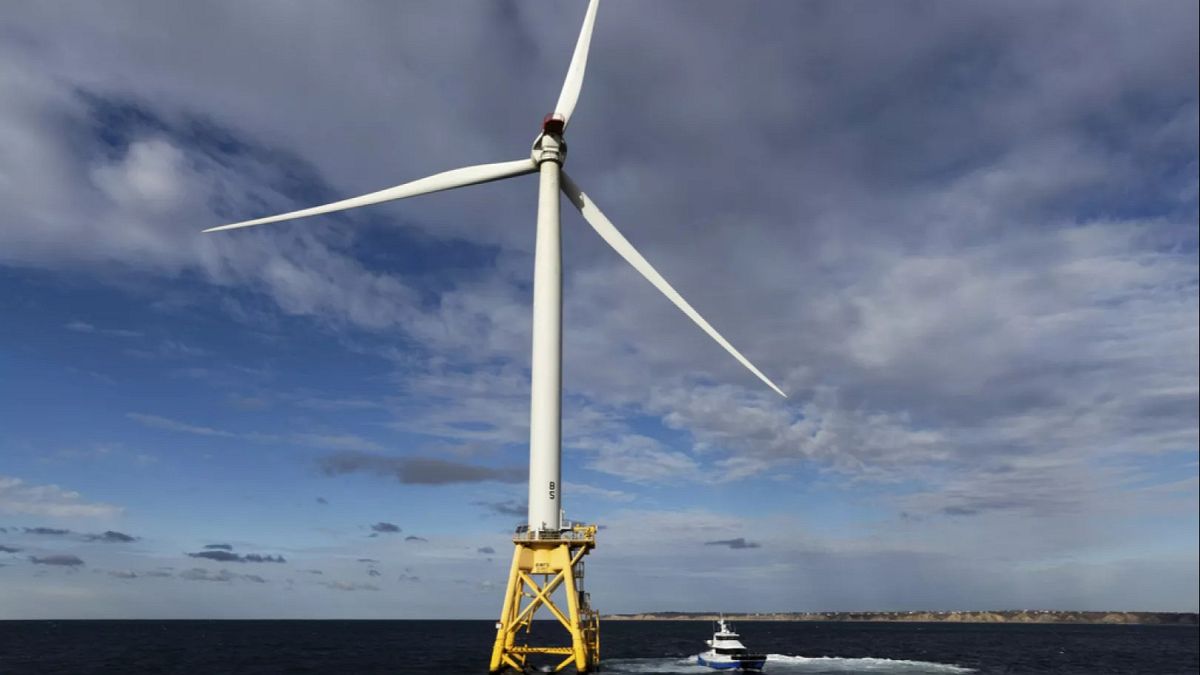Shares in Danish company Ørsted were down by around 16% in Copenhagen on Monday afternoon.
The fall followed an order from the US Bureau of Ocean Energy Management (BOEM), issued to the firm late on Friday, to halt all works on a nearly completed project near the coast of Rhode Island, until further notice.
The delay, potentially increasing the costs of the investment, could result in major losses for the company, which had already been on the hunt for funding.
To pay for the Revolution Wind project, Ørsted announced on 11 August that it was going to carry out a rights issue, meaning it would sell additional shares at a discounted price to shareholders, to raise DKK 60bn (€8.04bn).
The uncertainty around the project is now fuelling investor concerns, although share price losses moderated slightly on Monday afternoon. The company said that its financial guidance for 2025 remains unchanged.
“We’re complying with the order and will work with our US partners and stakeholders to identify a solution as quickly as possible for completing the project,” Rasmus Errboe, CEO of Ørsted, said in a statement. He added that “Revolution Wind is fully permitted and 80% complete”.
The New York project has 20-year power purchase agreements to deliver 400 MW of electricity to Rhode Island and 304 MW to Connecticut, enough to power over 350,000 homes across both states to meet their growing energy demand.
According to the Bureau of Ocean Energy Management’s order, the works are halted until further notice, which will give the authorities time to address concerns around the wind farms. These include questions “related to the protection of national security interests of the US and the prevention of interference with reasonable uses of the exclusive economic zone, the high seas and the territorial seas”.
The order comes just days after President Donald Trump said last Wednesday that the US is not going to approve wind or solar power projects.
Last month, Washington also tightened federal permission rules for such projects, handing over the final say to Doug Burgum, US Secretary of the Interior. This drew criticism from the renewables industry that projects are chosen for political motives.
However, Revolution Wind secured “all required federal and state permits, including its Construction and Operations Plan approval letter on 17 November 2023, following reviews that began more than nine years ago”, the company said in a statement.
“Ørsted is evaluating the potential financial implications of this development, considering a range of scenarios, including legal proceedings.”
The investment to proceed with the project amounts to DKK 5 billion (€670 million). Construction was earmarked to be finished by the second half of 2026.
Raising billions via rights issue
The world’s biggest offshore wind developer, which counts the Danish state as its largest shareholder, is focusing on boosting its financial health to support its investment and business development programs.
After the announcement from BOEM on Friday, the company’s statement left lingering concerns about the planned rights issue. By Monday morning, Ørsted announced that it was still committed to selling the shares to strengthen the company’s capital structure. It added that it had appointed a consortium of banks to do so.
The fresh funding would also partially finance the biggest project in New York state’s history, Sunrise Wind. However, Ørsted emphasised the “increased regulatory uncertainty for offshore wind in the US” in its latest statement.
Ørsted will hold an extraordinary general meeting on 5 September 2025 and will release further details concerning the launch of the rights issue.

